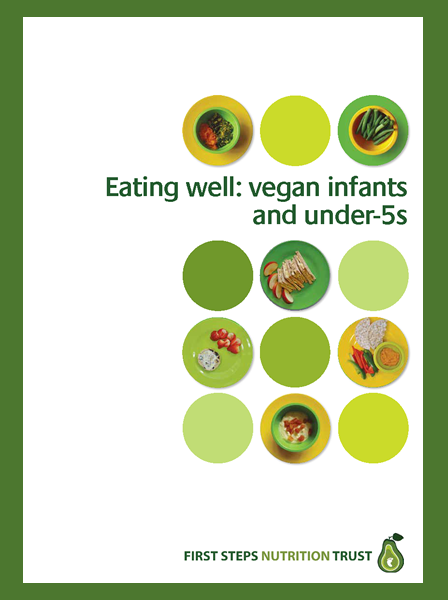Welcome to our January newsletter. We hope you had a nice Christmas and New Year and have been able to enjoy the recent winter sunshine.
This month we share with you our updated cost of living briefing, examining likely effects of the ongoing crisis on the diets of infants and young children. We make nine recommendations which we hope many peer organisations might consider getting behind. We include a couple of items relevant to ‘Veganuary’ and early years diets. We promote the new Nutrition Profile and Promotions Model and tool launched by WHO Europe in December, which we strongly advocate should underpin future efforts by DHSC to improve the composition, marketing and labelling of foods and drinks aimed at the under 3s. And we summarise the recently published paper ‘Becoming breastfeeding friendly in Great Britain – Does implementation science work?’.
There’s no recent news in the UK infant milk market to share (aside from the worrying upward cost trends highlighted in our cost of living briefing), but from the BFLG-UK we can finally share our completed report on the issues surrounding infant milks marketed as Foods for Special Medical Purposes. We also highlight some of the headline findings of a study in to the labelling of infant formula and follow on formula which we presented at the December APPG on Infant Feeding and Inequalities.
For forthcoming events, the APPG on Infant Feeding and Inequalities is meeting again in February, and there is also going to be a big launch of a hotly awaited 2023 Lancet series on breastfeeding.
Lastly, we’re delighted to share that Katie Pereira-Kotze who has been working for us as a consultant since last summer, has joined our team as a second Senior Nutritionist and will, amongst other things, be taking a lead on our work for the BFLG-UK. We’re delighted to benefit from her skills and experience.
Happy reading!
News
Updated: “What the Cost of Living Crisis means for the diets of babies and young children and recommended actions” (December 2022)
Our updated briefing note outlines our analysis of the likely effects of the ongoing cost of living crisis on the diets of infants and young children, and makes a series of recommendations on how these effects could be mitigated, which we hope peer organisations sharing our concerns may support.
Key points include:
40,000 babies and 184,000 young children are living in food insecure households, with likely negative health effects in the short and long term
The Healthy Start and Best Start Food Schemes monetary allowances are not keeping up with food inflation and the schemes are not sufficiently accessible to ensure beneficiaries can access adequately nutritious diets
Between March 2021 and November 2022 the most widely available and purchased infant formulas increased in cost by 15-23% and the cheapest and only ‘own-brand’ infant formula (Aldi’s Mamia) increased by 33%
There are no infant formulas that are affordable with the Healthy Start allowance
Infant formula price rises are safeguarding company profits, whilst families who cannot afford increasingly expensive infant formula may resort to unsafe practices, putting their baby’s health at risk
Negative impacts of the cost of living crisis on food safety behaviours have worrying implications as babies and young children are more vulnerable to food borne illness than adults
Ongoing inappropriate marketing by the baby food industry is misleading families in to purchasing discretionary products when limited incomes would be better spent on healthy foods and drinks
Alongside urgent measures to alleviate poverty and food insecurity more generally, we recommend 9 specific actions (please see the briefing for more details):
DHSC should urgently improve the Healthy Start and Best Start Food Schemes
Local Authorities and Health Boards should support families with infants under 12 months experiencing food insecurity
DEFRA should address the fairness of infant formula pricing
DHSC and those working with young families should publicise messages about appropriate, healthy and economical food choices <5 year olds
Retailers should take action to enable and encourage families to make appropriate, healthy and economical food choices for < 5 year olds
DHSC and local authorities should invest in universal breastfeeding support
DHSC should regulate against the inappropriate marketing of commercially-produced baby and toddler foods and drinks
DHSC/DFE should make early years food standards mandatory and provide settings with adequate resources to achieve these standards
Data/research is urgently needed to assess the scale and scope of the impact of the cost of living crisis on the diets and health of babies and young children
For more information contact vicky@firststepsnutrition.org
'Veganuary' and eating well for vegan infants and under 5s
As Veganuary comes to an end, we thought it pertinent to highlight our resource: ‘Eating well: vegan infants and under 5-s’. Although planning a vegan diet is without doubt challenging, with careful planning and the use of fortified foods and supplements, it is possible to provide a healthy and balanced vegan diet for babies and young children that meets all of their nutritional requirements for growth and development.
Families who choose a vegan diet and wish to bring their children up as vegans from birth may have been a little alarmed by an article in the Daily Mail on 16th January headlined ‘Warning to parents over making babies VEGAN: Dietitians say plant-based diet can stunt growth of infants’. Attention was drawn to issues such as stunting, compromised brain and nerve development and anaemia that may arise when vegan diets are not properly planned, resulting in energy and nutrient requirements not being met. However, this could be said of any diet that is nutritionally inadequate and with careful planning and use of fortified foods and supplements, it is possible for parents/carers to ensure that their babies and children's nutritional needs are met through a vegan diet.
Parents/carers who wish to bring their children up on a vegan diet are advised to seek expert advice on how to ensure their diet meets their needs for energy and nutrients. Our resource provides practical advice and ideas for first foods and meals for babies and young children, as well as advice on appropriate use of supplements and photos of portion sizes suitable for different age groups. It also contains information on milk alternatives, cooking for vegan children and signposts sources of additional information to help health care professionals and those working in early years settings support vegan infants and children to eat well
Anything is Pulse-able, even for babies and young children
On the 12th of January, the Eating Better alliance launched their Anything is Pulse-able campaign, aiming to raise awareness about the health, cost-saving and environmental benefits of pulses. As an Alliance member, we contributed this blog: Anything is Pulse-able, even for babies and young children to highlight how and why pulses are great first foods for infants from 6 months.
Launch of the WHO Europe Nutrient Profile and Promotion Model
Created by WHO’s Collaborating Centre in Nutritional Epidemiology at the University of Leeds, the Nutrient Profile and Promotion Model tool was launched at the end of 2022. The model is the first to be developed to assess foods and drinks marketed for infants and young children, and looks at both nutrient composition and the way the products are promoted against WHO guidance. It includes an online tool enabling users to easily recognise products which are inappropriate for infants and young children. The model and tool is meant to be used to restrict the inappropriate marketing of formula, foods and drinks for infants and young children up to 36 months of age. It is rooted in World Health Assembly Resolution 69.9 on ending the inappropriate promotion of foods for infants and young children, which was approved in 2016.
First Steps are actively promoting that the NPPM be used by the DHSC to inform efforts to regulate the composition, marketing and labelling of foods and drinks aimed at infants and young children up to 3 years of age.
For an example of how it works, we used the tool to assess an “Organic Banana Blueberry & Apple” baby food pouch labelled as suitable for infants from 4 months of age. The tool assessed the food as unsuitable, being high in free sugars, advertised as suitable for infants before 6 months of age, using a misleading name and making inappropriate nutrition and health claims.
New paper: Becoming breastfeeding friendly in Great Britain – Does implementation science work?
“Becoming breastfeeding friendly” is an implementation science process focused on assessing the extent to which a country’s policy environment is suitably enabling to improve breastfeeding rates. The BBF uses a gear model (as shown), and involves national stakeholder groups reaching consensus on scores for each gear, as a means to identify priority areas for action to remove barriers to breastfeeding.
This paper by Sally Kendall and colleagues, reports on the results of the BBF process being applied in England, Wales and Scotland in 2017-2019. It outlines how each of these countries has different strengths and weaknesses with respect to the gears needed to drive increased breastfeeding, and shares the specific gaps and recommendations that came out of the process as applied in each country. The authors also outline some of the positive advances that have been observed in the policy environment since, which the authors attribute in part to the BBF process. These are: NHS England inclusion of structured accreditation programmes such as Unicef UK Baby Friendly standards in the NHS Plan and agreement to do the same in Wales; improvements in data collection on infant feeding in England by NHS Digital [and since this paper was published DHSC has also confirmed that an Infant Feeding Survey will be implemented in 2024]; and commitment of £50 million towards community support and interventions for breastfeeding in England.
The paper ends by sharing that it has not been possible to initiate the next stage of BBF in GB, which would involve repeating the process to compare the countries’ scores and degree of achievement scaling up within 5 years of BBF. The authors share their intention to find the means and political will to continue the BBF process across GB and to establish the health and social value of improving the environment for promoting, protecting and supporting breastfeeding.
Read the full paper here.
Baby Feeding Law Group UK news
Infant milks marketed as foods for special medical purposes (iFSMP) - The case for regulatory reform to protect infant health
On the 7th of December 2022, the much-anticipated report entitled "Infant milks marketed as foods for special medical purposes (FSMP): The case for regulatory reform to protect infant health" was published on the BFLG website here. The report highlights concern about the commercial milk formula industry’s exploitation and misuse of the FSMP regulatory category. Whilst regulation around the composition and marketing of specialised infant milks should ensure their safe and appropriate use, we show in this report that the current approach is not fit for purpose.
To protect breastfeeding and infant health, we recommend that the UK Government takes a two-step approach to closer enforcement and improved regulation of the marketing practices of the commercial milk formula industry.
STEP 1: To urgently ensure greater compliance with existing laws on the marketing of infant formulas and iFSMP, and to close a loophole in the legislation. This will require robust and independent oversight of formula classification rather than leaving it to the manufacturers themselves, and greater enforcement.
STEP 2: To update the existing legislation on formula marketing to align with the International Code of Marketing of Breastmilk Substitutes and all subsequent World Health Assembly resolutions. This would put a stop to companies taking advantage – for marketing purposes – of the necessary distinctions between infant formula and iFSMP. We also highlight that rigorous, independent, and regular monitoring and enforcement of the commercial milk formula industry’s compliance with the law should be a key feature of an updated regulatory framework.
The BMJ wrote a news article on our report which can be accessed here.
The report has been shared with all members of the BFLG-UK, key stakeholders and on social media. We are seeking meetings with key stakeholders in the near future to discuss how to take forward the key recommendations of the report. Please read and share the report with anyone you feel may be relevant, and feel free to contact Katie (katie@firststepsnutrition.org) if you have any questions or suggestions.
“A report on the labelling of infant formula & follow-on formula in the UK, & companies' adherence to UK laws, Guidance Notes, & International Code of Marketing of BMS”
At the All Party Parliamentary Group on Infant Feeding and Inequalities meeting on the 6th of December 2022, LSHTM alumni Maiko Kamata and Katie Pereira-Kotze presented the findings of Maiko’s MSc summer project on the labelling of infant and follow on formulas marketed in the UK. There was interest and engagement at the APPG IFI around the research results, which showed that many product labels are not fully compliant with UK legislation or the Code, with 100% non-compliance in the categorising of idealising products, cross-promotion and nutrition and health claims. This research shows that inappropriate formula marketing is an ongoing problem; monitoring and enforcement of compliance with the law is not happening, and legislation needs to be strengthened. We are currently preparing a paper for peer review and will share once this has been published.
Forthcoming
Launch of the 2023 Lancet series on breastfeeding
On Wednesday the 8th February, the 2023 Lancet Series on Breastfeeding will be launched at a hybrid event, co-hosted by the World Health Organization, The Lancet, and Children in All Policies. The in-person event is taking place at The Royal Society of Medicine in London (requiring a ticket for attendance and there is currently a waitlist to reserve a spot) and the event will be livestreamed here. A panel of experts will unpack the new three-paper Lancet Series, which explores how the value of breastfeeding is undermined and exploited by the formula milk industry. The authors of the papers call for breastfeeding to be a collective responsibility, that is effectively protected, promoted, and supported at all levels.
APPG on Infant Feeding and Inequalities Meeting: Tuesday 7th February
The All-Party Parliamentary Group on Infant Feeding and Inequalities will be hosting a hybrid meeting on the 7th of February at 1pm. If you are interested in attending this meeting (which is open to anyone), you can sign up for updates and the Zoom link via this form and visit the APPG website.
HR Update
Welcome Katie!
We’re delighted to welcome Katie Pereira-Kotze in to our team as a second Senior Nutritionist. Katie is a dietitian by training and has worked in the field of public health nutrition since 2005. She has a Masters in Nutrition from Stellenbosch University and is currently completing her PhD in Public Health through the University of the Western Cape. Katie has worked in government, research, and academia and most of her previous work was in South Africa, but she relocated to the UK in 2020. Katie has a special interest in and looks forward to continuing advocating for the protection, promotion and support of optimal maternal, infant and young child nutrition at First Steps Nutrition Trust.













